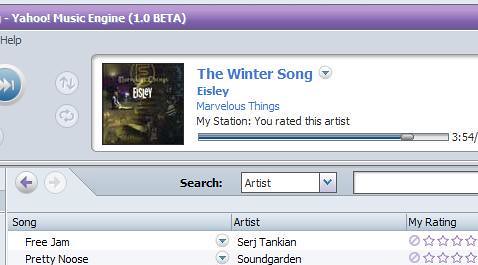Rotund Ming Eunuch In Kerala
Following up on a
recommendation by an SM commenter,
I borrowed Louise Levathes'
"When China Ruled The Seas"
--- a book based, among various other sources, on the official Ming scribe Ma Huan's account, Triumphant Visions of the Ocean's Shores. Jumping ahead to the chapter entitled "Destination:Calicut" we
find :
Also via SM I found
this well-written 2001 article from Time Magazine
describing Aparisim Ghosh's search to find Zheng He's legacy in Cochin and Calicut, spurred partly by Ghosh's interest in the chinese fishing nets that he knew from his cochin childhood. He finds a plaque posted by modern-day Cochin municipal office saying that nets were brought to Kerala between 1350 and 1450, and, intriguingly, "Guangzhou-made porcelain tiles" in the floor of the old jewish synagogue of Cochin. In Calicut he finds "Silk Street" --- the Chinese Quarter of 15th century Calicut (?!), but no proof of the chinese presence, not even Zheng He's commemorative plaque. He does find what he thinks might be the way the Chinese and Indian traders
did business :
...This undoubtedly is how the admiral's minions conducted negotiations while they were here. (Ma Huan's account, Triumphant Visions of the Ocean's Shores, cites deals sealed by the clasping of hands.) The finger-code system was devised to allow traders from all over the world to do business here without having to learn Malayalam, the local language. The towel keeps the deal-making under wraps, a useful precaution in an overcrowded bazaar where the next man might try to undercut you.
In autumn of 1405, the fleet of 317 brightly painted junks with a total crew of more than 27,000 [!] men was ready to depart from Nanjing....The destination of the treasure ships was Calicut--- the powerful city-state in Kerala on the west coast of India that had a market for spices a rare woods that attracted traders throughtout the Indian Ocean.
The chapter doesn't have a lot about Calicut itself, and mostly describes the journey to Calicut (called "the great Country of the Western Ocean" by the Chinese) via Java, Sumatra and Ceylon. It talks of the Chinese influence on the economies and politics of all the countries they visited --- including their role in the installation and toppling of the rulers of Ceylon and Calicut. An interesting detail described is the
Chinese rendering of the story of Moses and Aaron that they heard in Kerala (possibly from some of
my ancestors ?):
...the Chinese heard for the first time the curious story of a holy man called Moses and the incident involving Aaron and the golden calf, which they wrongly assumed had taken place in Calicut and was linked to the Hindu veneration of the cow.
Levathes also includes the
inscription on the stone tablet that Zheng erected in Calicut "commemorating the warm relationship between the two countries".
[A] secret ritual, practiced by spice traders for over a millennium: the bargaining of prices. Buyer and seller clasp right hands under a towel or handkerchief and, thus hidden, make offers and counteroffers with a system of finger signals...
Another
commenter mentioned the presence of a chinese community in Quilon (Kollam) at that time. Levathes confirms that the Chinese traded with Quilon and Cochin even before Zheng He got there. And some googling lead me to this sentence (
of questionable veracity, if you ask me) trying to link Quilon's chinese past to the present:
Traces of a once prosperous trade with China are still seen in the form of Chinese fishing nets, huge Chinese water pots, blue and white porcelain and sampan-like boats.
I don't know about the blue and white porcelain. Ghosh's account also mentions the water pots (Chinna-Bharani). But sampan-like boats ? Are they saying that vallam-like boats are exclusive to kerala and south-east asia ? Interesting if true.




